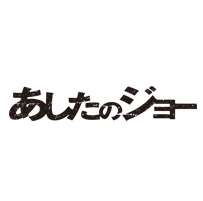Show Me Love (Not a Dream)
| "Show Me Love (Not a Dream)" | ||
|---|---|---|
 Digital download cover artwork | ||
| Promotional single by Hikaru Utada from the album Utada Hikaru Single Collection Vol. 2 | ||
| Released |
November 17, 2010 (see release history) | |
| Format | Digital download | |
| Recorded | 2010 | |
| Genre | Rock, dark ambient | |
| Length | 4:17 | |
| Label | EMI Music Japan | |
| Writer(s) |
| |
| Producer(s) |
| |
| Music sample | ||
| Show Me Love (Not a Dream) | ||
"Show Me Love (Not a Dream)" is a song by Japanese singer-songwriter Hikaru Utada. Used as the theme song for the film Tomorrow's Joe (2011), it was released as a digital download preceding Utada's second Japanese compilation album, Utada Hikaru Single Collection Vol. 2, on November 17, 2010.[1]
Composition and inspiration
The song is a multi-sectioned composition, featuring piano, synths and later a rock arrangement featuring drums and bass. The song begins with a piano solo, which leads into a section featuring Utada's vocals and atmospheric background synths. Background vocals and a bass line are later added in this section. For the first chorus, these instruments cut out, and the arrangement is replaced with a rock sound. The rock sound persists until the end of the song, with occasional verse sections featuring background vocals, atmospheric sounds and piano.
The lyrics of the song are self-reflective, with the protagonist of the song making statements about their own flaws, such letting their lack of confidence get the best of them, endless anxiety, and weakness, however says that these are not things they are embarrassed about. Several images in the verses are created, such as slowly sinking to the bottom of a lake, chasing two rabbits but catching only one, and a purple traffic light stopping her thoughts. The song later tells people to scream, find the source of pain and to forget theories; and that it "is good if we all carry deep darkness." The song finishes with several aphoristic statements, such as "If you climb a mountain, you must go down," "no matter what kind of deep love you have, it is imperfect." The song ends with a plea to recognise yourself and your own courage.[2]
"Show Me Love (Not a Dream)" was inspired by the feelings Utada felt while making her decision to go on hiatus.[3]
Promotion
The song was used in an advertising commercial campaign for Recochoku digital media store during the album's release, much like "Goodbye Happiness" before it.[4] Later in February 2011, the song was used as the theme song for the film adaptation of the manga Tomorrow's Joe, starring Tomohisa Yamashita.[5]
The song was performed during Utada's two date concert series Wild Life in December 2010.[6]
Chart rankings
| Chart (2010) | Peak position |
|---|---|
| RIAJ Digital Track Chart Top 100[7] | 21 |
| Chart (2011) | Peak position |
| Billboard Japan Adult Contemporary Airplay[8] | 20 |
| Billboard Japan Hot 100[9] | 27 |
| RIAJ Digital Track Chart Top 100[10] | 33 |
Release history
| Region | Date | Format |
|---|---|---|
| Japan | November 17, 2010[1] | Full-length cellphone download, ringtone |
| November 24, 2010[1] | PC download |
References
- 1 2 3 "New Release" (in Japanese). EMI. Archived from the original on November 26, 2010. Retrieved November 26, 2010.
- ↑ "Show Me Love (Not A Dream) - 宇多田ヒカル 歌詞情報 - goo 音楽" (in Japanese). Retrieved November 26, 2010.
- ↑ "宇多田ヒカル 『Utada Hikaru SINGLE COLLECTION VOL.2』" (in Japanese). Tower Records. November 19, 2010. Retrieved November 20, 2010.
- ↑ "宇多田ヒカル Show Me Love (Not A Dream)" (in Japanese). Recochoku. Retrieved November 22, 2010.
- ↑ 宇多田ヒカル新曲が映画「あしたのジョー」主題歌に決定 (in Japanese). Natalie. November 17, 2010. Retrieved November 18, 2010.
- ↑ "宇多田ヒカル一時休止前ラスト公演で感涙&Ust新記録樹立" (in Japanese). Natalie. December 13, 2010. Retrieved December 17, 2010.
- ↑ "レコード協会調べ 2010年11月17日~2010年11月23日<略称:レコ協チャート(「着うたフル(R)」)>" (in Japanese). Recording Industry Association of Japan. November 26, 2010. Retrieved November 26, 2010.
- ↑ "Adult Contemporary Airplay". Billboard (in Japanese). February 16, 2011. Archived from the original on February 17, 2011. Retrieved February 17, 2011.
- ↑ "Japan Billboard Hot 100". Billboard Japan. February 16, 2011. Archived from the original on February 17, 2011. Retrieved February 17, 2011.
- ↑ "レコード協会調べ 2011年02月09日~2011年02月15日<略称:レコ協チャート(「着うたフル(R)」)>" (in Japanese). Recording Industry Association of Japan. February 18, 2011. Retrieved February 18, 2011.